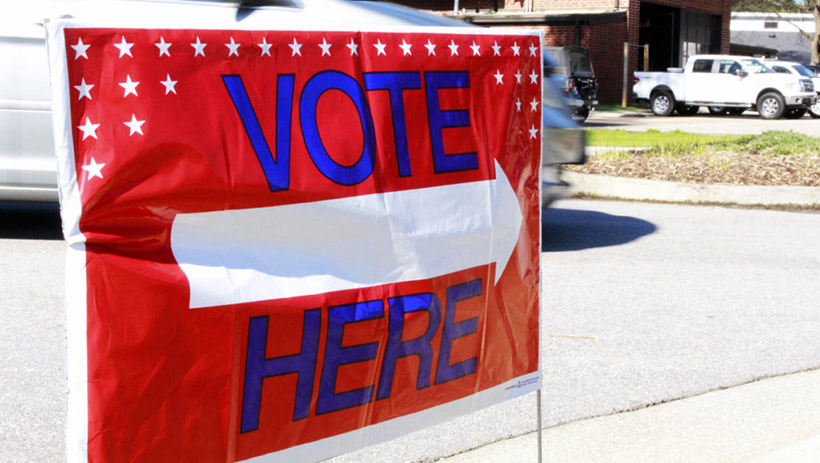Publisher's note: This post appears here courtesy of the Carolina Journal, and written by John Hood.

When all was said and done, North Carolina's special congressional elections this year proved not to be particularly special.
Republican state Rep. Greg Murphy easily defeated Democrat Allen Thomas, the former mayor of Greenville, in the contest to replace the late Walter Jones in the 3rd District. And in the closely watched 9th District, Republican state Sen. Dan Bishop defeated Democrat Dan McCready by 51 percent to 49 percent.
Neither seat changes hands. Donald Trump's trip to North Carolina on Monday likely boosted GOP turnout for both victors. But his weak approval ratings helped make the Bishop-McCready race competitive in the first place.
Like I said, there wasn't much special about these outcomes. They were fairly predictable. They ratified trends already evident (rural areas becoming more Republican, suburbs somewhat less so). And I doubt they tell us anything new about the presidential race of 2020, although national pundits will spend the next week or two claiming otherwise. Still, I do think North Carolinians can draw some lessons from our special-election cycle. You can think of them as the three "remains" of the day, so to speak.
One is that partisan polarization remains an immensely powerful force. President Trump has a loyal following within the GOP core but turns off quite a few "soft" Republicans and right-leaning swing voters. Most voted for him in 2016, anyway, because they viewed Hillary Clinton as an unacceptable alternative.
During the 2018 midterms, some of these voters were willing to vote for moderate-sounding Democrats. It cost Republicans dearly in dozens of seats where they had previously enjoyed an advantage.
McCready and Thomas tried to work the same magic this year. It didn't materialize. Polarization reasserted its pull. Democratic and Republicans voters turned out for their respective teams. The dwindling number of true swing voters either didn't turn out or didn't break sharply enough to turn the tide.
In Thomas' case, the electoral demographics were always heavily against him. Donald Trump won 59 percent of the vote in North Carolina's 3rd District. Four years earlier, Mitt Romney won 58 percent. Gerrymandering doesn't explain this. Polarization does. There were once many ticket-splitters in Eastern North Carolina. Now few see Democrats as plausible representatives of their views, at least for federal office. (I suspect this dynamic also benefited Dan Bishop in the eastern counties of his district, such as Robeson.)
Already facing a steep hill, Thomas ended up sliding rather than climbing. At 62 percent of the unofficial balloting, Greg Murphy did better than Trump and Romney here.
As for the 9th District, stretching from Charlotte along the South Carolina border to Fayetteville, Dan McCready stressed during his first campaign that he would be an independent voice in Washington, and that he wouldn't vote for Nancy Pelosi for speaker. This message helped propel his 2018 candidacy to near-victory. He repeated the message this year, surely to positive effect once more. A narrow loss in what was until recently a Republican-friendly district is noteworthy.
It is, however, still a loss. I suspect somewhat-fewer voters this year than last found McCready's pledge of independence compelling enough to jump ship. The absentee-ballot scandal that broke after the 2018 election didn't do it, either. Power is already divided in Washington. Sending another Democrat wouldn't have changed that. But it might have strengthened the hand of
a Democratic Party many see as increasingly left-wing, despite McCready's protestations to the contrary.
A second lesson is that pocketbook issues remain salient. Bishop and the Republicans
used the energy issue effectively against McCready, a precedent that other conservative candidates should take to heart. Although voters are certainly concerned about the environment, they do not favor regulatory responses that will make them pay significantly more for electricity and gasoline. Associating McCready with costly energy mandates hurt him.
Finally, the special elections show that state legislators remain a good pool of potential candidates for higher office. Murphy and Bishop were experienced campaigners who made good choices and exercised message discipline.
Not exactly earth-shattering lessons, I grant you. But that's my point. Don't read too much into these special elections. The 2020 cycle will have its own dynamics.
John Hood (@JohnHoodNC) is chairman of the John Locke Foundation and appears on "NC SPIN," broadcast statewide Fridays at 7:30 p.m. and Sundays at 12:30 p.m. on UNC-TV.

